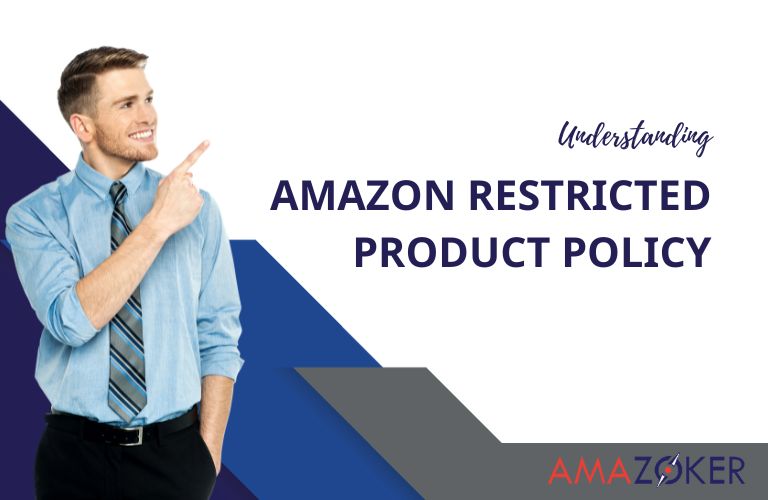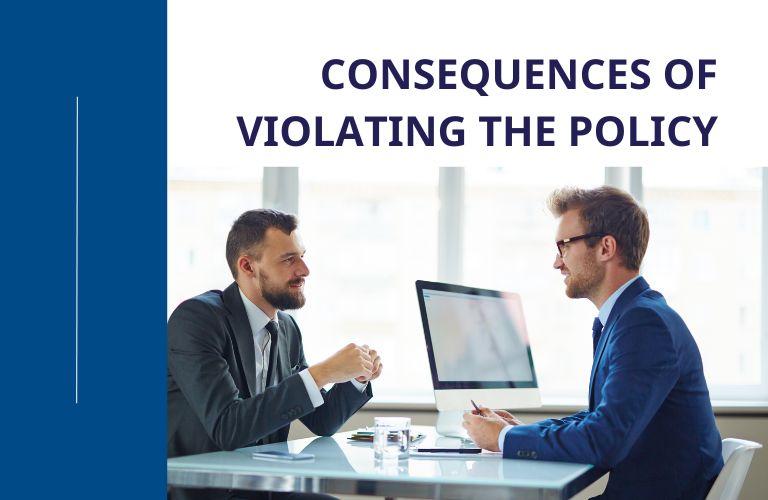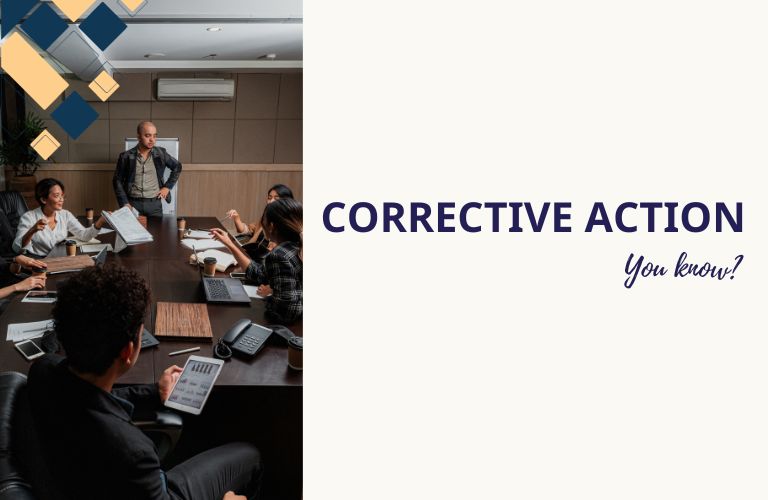UNDERSTANDING AMAZON RESTRICTED PRODUCT POLICY

Amazon’s expansive platform offers tremendous opportunities for sellers worldwide. However, navigating its policies, especially regarding restricted products, is crucial. Understanding the Amazon restricted product policy is fundamental for sellers to operate within the platform’s guidelines and avoid penalties.
What is Amazon’s Restricted Product Policy
Amazon’s Restricted Product Policy serves as a safeguarding mechanism, cataloging items deemed unsuitable for sale within their expansive marketplace. The policy meticulously outlines products whose sale is prohibited, encompassing an array of categories:
- Hazardous Materials: Items posing potential risks to health, safety, or the environment fall under this category. Chemicals, flammables, and items containing certain batteries or substances with adverse effects are typical examples.
- Health-Protective Products: Amazon strictly regulates the sale of health-related items to ensure consumer safety. Pharmaceuticals, medical devices, supplements, and items making unverified health claims are often subject to stringent scrutiny.
- Legal Regulation Breaches: This category includes products that infringe upon legal regulations or intellectual property rights. Counterfeit goods, products violating copyright laws, and items with unauthorized trademarks fall into this segment.
The policy’s adaptability is noteworthy – it remains dynamic, evolving in tandem with regulatory changes and advancements in product safety standards. Amazon periodically revises this policy to incorporate newly identified risks or to align with updated legal frameworks and industry best practices.
Reasons Behind Amazon Restricted Products Policy Violations
Violations of Amazon’s Restricted Product Policy often result from diverse factors, pointing to the complexity of maintaining compliance within the platform’s stringent guidelines. Several common reasons underpin such infringements:
- Limited Understanding or Non-Adherence to Policy Guidelines: Sellers, especially newcomers, might lack comprehensive awareness or misinterpret the extensive list of restricted products. This lack of understanding can lead to unintentional listing or sale of prohibited items.
- Inaccurate Product Information: Errors or inconsistencies in product descriptions, specifications, or categorizations can inadvertently lead to the inclusion of restricted items in listings. Mistaken labeling or inadequately describing a product may result in unintentional policy violations.
- Breaches of Consumer Protection Regulations: Sellers might unknowingly offer products that violate consumer protection laws or regulations. This could encompass items with misleading claims, insufficient safety standards, or inadequate compliance with health and safety regulations.
- Oversight in Product Evolution: Amazon’s policy undergoes periodic revisions to adapt to evolving regulatory landscapes and emerging risks. Sellers may inadvertently overlook these updates, leading to inadvertent violations when existing products become restricted under new guidelines.
- Misinterpretation of Product Legality: Complex legal nuances surrounding certain products or geographical differences in regulations might lead sellers to mistakenly believe that an item is permissible when it is, in fact, restricted on the platform.
Addressing these reasons requires sellers to stay abreast of policy changes, thoroughly review their inventory, ensure accurate product information, and continually educate themselves about compliance requirements. Furthermore, fostering a culture of regular auditing and proactive adherence to Amazon’s policies becomes pivotal to avoid inadvertently breaching these stringent regulations.
Consequences of Violating the Policy
Violating Amazon’s Restricted Product Policy triggers a cascade of consequences that can profoundly impact a seller’s operations, financial standing, and reputation within the platform:
- Loss of Selling Privileges: Amazon is vigilant in upholding its policies to ensure a safe and compliant marketplace. Sellers found violating the restricted product policy risk immediate suspension or revocation of their selling privileges. This means a sudden halt to their ability to list, sell, or manage their products on Amazon.
- Financial Penalties: Alongside the loss of selling rights, Amazon may impose substantial monetary penalties on offending sellers. These fines can range from manageable fees to substantial charges, depending on the severity and recurrence of the violations.
- Account Suspension or Closure: For repeated or severe violations, Amazon may resort to suspending or permanently closing the seller’s account. This severe measure entails the loss of access not only to selling privileges but also to critical seller support and customer data.
- Reputation Damage: Beyond immediate financial losses, the impact on a seller’s reputation can be far-reaching. Negative implications from policy violations tarnish credibility and trustworthiness. This damaged reputation may extend beyond Amazon, affecting the seller’s business prospects elsewhere.
- Revenue Loss and Business Disruption: The abrupt cessation of selling privileges can lead to a significant loss in revenue and disrupt the continuity of the seller’s business. Rebuilding a presence on the platform after such penalties can be challenging and time-consuming.

The Consequences of violating the Amazon Restricted Product Policy are something no one desires
Navigating these consequences requires diligent adherence to Amazon’s policies and swift action to rectify any inadvertent breaches. Sellers must prioritize compliance, regularly audit their listings, promptly address policy violations, and craft comprehensive plans of action to rectify past mistakes and prevent future breaches.
Corrective actions
The Corrective measures when an account violates policies will be beneficial for sellers
Navigating a path towards rectifying Amazon’s Restricted Product Policy violations involves a strategic course of action, primarily centered around two key approaches:
Restricted Products Policy Violation Appeal
Upon receiving a notice of policy violation, sellers can file an appeal with Amazon. The appeal process involves a structured response outlining:
- Acknowledgment and Understanding: Acknowledge the violation, demonstrating a comprehensive understanding of the specific policy breached.
- Root Cause Identification: Provide an in-depth analysis identifying the reasons behind the violation. Was it due to misinterpretation, unintentional oversight, or a genuine mistake?
- Corrective Measures Taken: Detail the immediate corrective actions initiated to rectify the issue. This might involve removing listings, adjusting product information, or discontinuing sales of the offending items.
- Preventative Measures: Outline a robust plan to prevent future occurrences. This includes enhanced monitoring, regular policy reviews, and staff training to ensure full compliance with Amazon’s policies.
- Appeal for Reinstatement: Humbly request reconsideration and reinstatement of selling privileges, emphasizing the commitment to compliance and providing assurance of future adherence to Amazon’s policies.
Restricted Products Policy Violations Plan of Action
Crafting a comprehensive plan of action is imperative to address past violations and prevent future infractions. This plan involves:
- Detailed Assessment: Conduct a thorough evaluation of the violation, its root causes, and the extent of its impact on the seller account.
- Actionable Steps: Outline specific, actionable steps to rectify the violation. This includes immediate removal of restricted items, revising product listings, and ensuring compliance with all policies.
- Preventative Strategies: Develop strategies to prevent future policy violations. This involves implementing robust monitoring systems, regular policy audits, and employee training programs.
- Timeline and Accountability: Establish a timeline for implementing corrective measures and assign responsibility to individuals or teams for each action item.
- Continuous Improvement: Commit to ongoing evaluation and refinement of compliance measures to maintain alignment with Amazon’s policies.
Successfully navigating the appeal process and executing a well-structured plan of action significantly increases the chances of restoring selling privileges and reinstating the seller’s standing on the platform. Clear communication, proactive measures, and a demonstrated commitment to compliance are key elements in this process.
Amazoker’s Related Services
Amazoker stands out as a dedicated service provider offering specialized assistance tailored to Amazon sellers grappling with compliance issues, specifically concerning Amazon’s Restricted Product Policy. Their comprehensive suite of services includes:
- Policy Compliance Assessment:
Amazoker conducts thorough assessments of seller accounts to identify any potential policy violations or risks. This includes an in-depth review of product listings, ensuring adherence to Amazon’s policies and guidelines.
- Appeal Support:
In the event of a policy violation, Amazoker provides expert guidance and support throughout the Amazon appeal process. Their team assists sellers in crafting well-structured, persuasive appeals that address the root cause of the violation and propose actionable solutions.
- Customized Action Plans:
Amazoker collaborates with sellers to develop tailored action plans aimed at rectifying past violations and preventing future infractions. These plans encompass detailed steps, timelines, and strategies to ensure ongoing compliance with Amazon’s policies.
- Compliance Education and Training:
Amazoker offers educational resources and training sessions to sellers, ensuring they stay updated on Amazon’s evolving policies and regulations. This proactive approach helps sellers understand and implement compliance measures effectively.
- Ongoing Support and Monitoring:
Beyond immediate assistance, Amazoker provides continuous support and monitoring services. They assist sellers in implementing and maintaining compliance measures, conduct regular audits, and offer guidance to prevent potential violations.
- Seller Account Restoration:
In cases of account suspension or restrictions due to policy violations, Amazoker works diligently to aid sellers in the process of account restoration. Their expertise and strategic approach aim to expedite the resolution and reinstatement of selling privileges.

Amazoker stands out as a leading provider of professional Appeal service for Amazon sellers
Amazoker’s specialized focus on Amazon’s policies and their proactive approach to compliance issues make them a valuable partner for sellers navigating the complexities of the platform’s regulations. By leveraging their expertise, sellers can better navigate policy-related challenges, mitigate risks, and sustain their business operations on Amazon effectively.
To know more about Amazoker you can visit their website: amazoker.com or call them at +1 580 262 6126. They will be happy to answer your questions and provide you with solutions.
Comprehending Amazon restricted product policy is pivotal in navigating the platform for sellers. Adherence to this policy not only helps sellers evade negative consequences but also fosters a safe and reliable selling environment for both consumers and sellers. Leveraging support services like Amazoker can assist sellers in resolving related issues and effectively maintaining their business presence on Amazon
Source: https://amazoker.com/amazon-restricted-product-policy/
Comments
Post a Comment